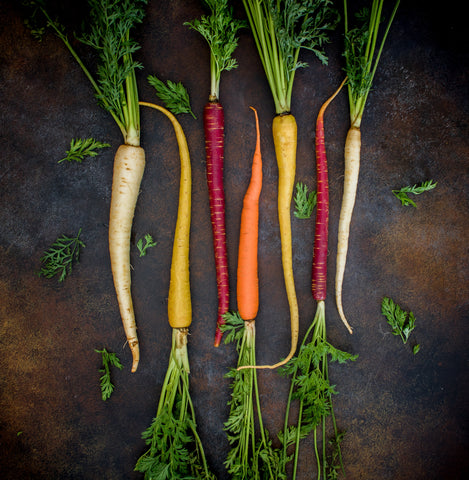
Jordan Freytag


There are thirteen essential vitamins that are necessary for a healthy body. Eating a balanced diet is often the easiest way to maintain the levels of essential vitamins in your body, but for vegetarians, those with food allergies, and those with dietary illnesses, maintaining these levels can be hard. There are many fruits and vegetables that can help to fill in the gap in your nutritional plan. And these edible plants are often far more sustainable than multivitamins and mineral medications.
Balance Health Foods Needs With Your Current Diet
The easiest source of sustainable vitamins is healthy and well-grown fruits and vegetables. There are many vitamins and minerals the human body is simply better at absorbing from sources such as meat, vegetables, and traditional sources of nutrition tied to an everyday diet.
Evolution suggests human stomachs have developed to absorb vitamins and minerals from sources of nutrition our ancestors ate for thousands of years, after all. But the increase in healthy foods such as kale and legumes, while inflated in the media, has made new sources of these essential vitamins available to those with dietary restrictions.
Look For Foods That Require Little Energy To Grow
And when we consider sustainability, livestock farming is actually very inefficient. Many minerals such as iron are more efficiently absorbed through meat, but dark leafy greens and nuts are both more sustainable substitutes. For a more in-depth look at foods that are very energy efficient when it comes to both their growth and the energy produced when they're consumed, we suggest looking at the Dietary Approaches to Stop Hypertension (DASH) program.
Use Vitamins To Fill In The Gaps, Not To Replace Foods
Multivitamins are a sustainable way to fill in the gap as well. MVMs are an unregulated market so that they can contain combinations of essential vitamins in different quantities. But if you find a reputable source of multivitamins, because they are a distilled form of essential vitamins, they can help to fill vitamin or mineral deficiencies left by modern diets. This is one case where synthetic multivitamin tablets are actually more sustainable than natural alternatives.
A sustainable intake of essential vitamins can be a difficult thing to balance, especially if you suffer from dietary restrictions or allergies. Multivitamins and synthetic tablets are both sustainable and an acceptable replacement for vitamins that may be lost in your daily diet. The traditional sources, such as superfoods and traditional, well-balanced meals can also fulfill your need for essential vitamins, as long as you consider adding sustainable, vitamin-rich substitute ingredients.
Written by Lucy Wyndham
Our Recommended Picks
Leave a comment
Your email address will not be published. Required fields are marked *
0 Comments
No Comments yet! Be the first to start a conversation
Further Reading

Seed Catalog Overwhelm: How to Pick the Right Seeds for Your Climate and Lifestyle
Coming Soon!

Ashleigh Smith
2026-01-091 min read0
Vertical Gardening: How to Grow More Food in Less Space
Written By Lara Wadsworth Calling all small-space gardeners! If you’ve ever wanted to grow more food without expanding your garden bed, vertical gardening might be your answer. But what is it exactly? And how does it work? Vertical gardening is the...

Ashleigh Smith
2025-12-295 min read3
Troubleshooting Common Tobacco Seed Problems
Even experienced gardeners can face challenges when germinating tobacco seeds. These seeds are incredibly small and sensitive to environmental changes, meaning even minor errors in soil, moisture, or light can affect success rates. Understanding the most...

Ashleigh Smith
2025-12-224 min read0
Heirloom and Specialty Tobacco Seed Varieties
For home gardeners passionate about seed diversity, heirloom and specialty tobacco seed varieties offer a rich tapestry of colors, aromas, and leaf textures. Whether you’re drawn to the deep heritage of classic smoking tobaccos or the beauty of...

Ashleigh Smith
2025-12-225 min read0



